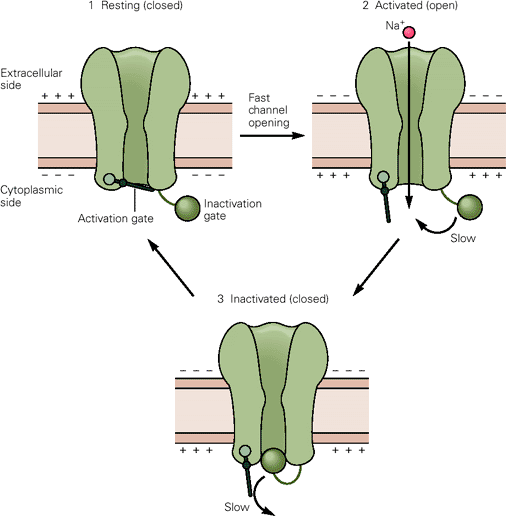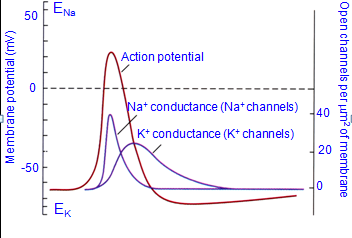I am relatively new in the subject of biology. I have a strong mathematical background and in order to get into the field of computational neuroscience, I am trying to get some biological background.
I am reading about the general mechanism of action potentials in neurons. I understand that an action potential starts with a fast entrance of sodium into the postsynaptic cell. Since the potassium channels are slower than the sodium channels, potassium starts flowing out of the cell only around the peak of the action potential, thereby hyperpolarizing the cell's membrane potential.
What is the mechanism that causes the potassium channels to activate slower than the sodium channels? Does it involve differences in the behavior of the suitable neurotransmitters? Because I didn't manage to find transmitters or couples of transmitters and receptors which activate potassium channels, but not sodium channels (or sodium channels and not potassium channels).


